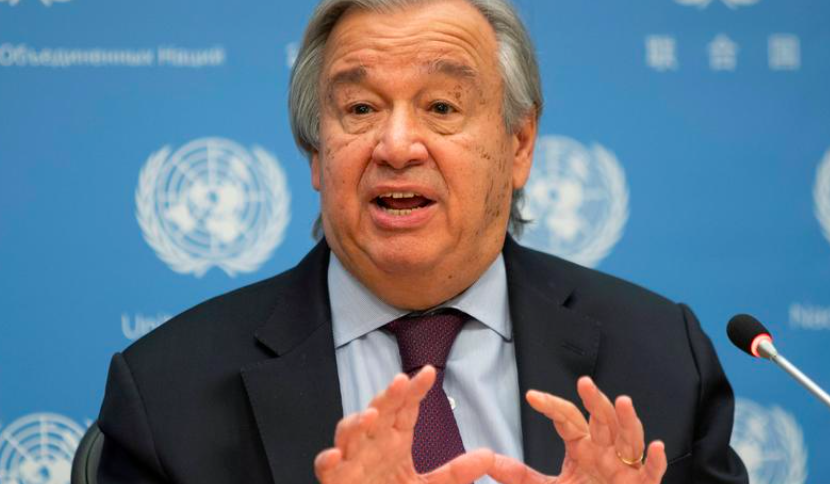World leaders should declare states of "climate emergency" in their countries to spur action to avoid catastrophic global warming, UN Secretary-General Antonio Guterres said on Saturday.
The UN chief made the remarks at the Climate Ambition Summit, which is co-hosted by the UN, UK and France in partnership with Chile and Italy.
Guterres made his call aimed at building momentum behind the Paris deal, buoyed in recent months by a renewed commitment from China and the prospect of U.S. President-elect Joe Biden bringing the United States back into the pact.
Read more: China vows new measures as world leaders gather to fight climate change
"Can anybody still deny that we are facing a dramatic emergency?" Guterres, a former Portuguese prime minister who has made climate change his signature issue, said via video.
"That is why today, I call on all leaders worldwide to declare a State of Climate Emergency in their countries until carbon neutrality is reached."

United Nations Secretary-General Antonio Guterres speaks during a news conference at U.N. headquarters in New York City, New York, U.S., November 20, 2020. /Reuters
United Nations Secretary-General Antonio Guterres speaks during a news conference at U.N. headquarters in New York City, New York, U.S., November 20, 2020. /Reuters
With the impacts of climate change increasingly stark since the Paris deal was struck - ranging from wildfires in Australia and California to collapsing ice sheets - popular pressure has grown on leaders to listen to warnings from scientists.
Words and actions by world leaders
Nevertheless, the dozens of leaders who spoke mostly offered tweaks to existing commitments or promises of bolder moves before crucial talks in Glasgow in late 2021.
British Prime Minister Boris Johnson committed to ending all direct UK support for the fossil-fuel sector overseas. And he has presented plans for a "green industrial revolution" creating up to 250,000 jobs, especially in renewable energy.
Israel and Pakistan vowed to phase out coal-fired power plants. But while India touted its green credentials, there was little new in the way of action from a country that is battling increasingly erratic weather patterns and air pollution.
President Xi Jinping said China would work to reduce the intensity of its emissions by 65 percent by 2030, compared with 2005 levels.
He promised to "aim to peak carbon dioxide emissions before 2030," repeating a pledge he made in September, when the world's second-largest economy said it would achieve net-zero emissions by 2060.
Xi also reiterated China's view that while it is still developing economically, richer countries should step up more.
Japan and South Korea, which both pledged in October to reach net-zero emissions by 2050, made no commitments on coal finance - though they did pledge to submit more ambitious emissions targets under the Paris accord.
Smaller countries attending the online summit included Honduras and Guatemala, which were hit last month by a pair of monster hurricanes.
Maldives President Ibrahim Mohamed Solih, whose low-lying country could be wiped out by rising seas in the Indian Ocean, said, "The Maldives will do all that it can to address the climate emergency."
"We call on the international community to do the same," he said, noting that rich countries had been promising more technical and financial help "over many decades."
In his own message, Pope Francis stressed that both the pandemic and climate change "weigh most heavily upon the lives of the poor and vulnerable."
(With input from agencies)

